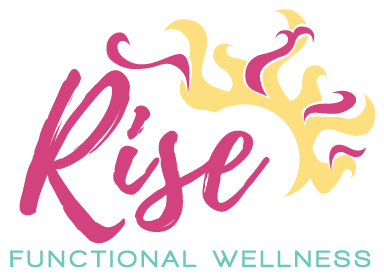Q: What is burnout and how do I know if I’m reaching the point of burnout?
Burnout is typically thought of in a way that relates to work, however, burnout can relate to so many things outside of the workplace. A new term that has developed over the past 9 months is COVID fatigue. I see COVID Fatigue as a type of burnout, with the ongoing situation and the restrictions that we face in our day-to-day lives. One of the things that can lead to burnout is uncertainty and we definitely have had uncertainty in our lives. I think you will see that there are a lot of similarities in work-related burnout and that which we are experiencing during the pandemic.
When we talk about burnout, we are referring to a physical or emotional state of exhaustion. If you are always busy, or are always on the go, or you’re the type of person who is always running and you try to be everything to everyone, you are at greatest risk of burnout. Those who are in helping professions or a caretaker are also at increased risk of burning out. When you are constantly doing so much for others you don’t necessarily have the time to take for yourself and/or you are not honoring that time.
If you can identify the things that are leading to burnout and you’re aware of the potential risk factors, then you can identify what steps are necessary order to mitigate or eliminate those risk factors. Before we get into that, some of the symptoms of burnout would look like
- becoming overly cynical or critical; criticizing your coworkers or your colleagues
- being overly critical of somebody else’s work
- lacking energy
- not feeling motivated to get out of bed in the morning
- lacking satisfaction
- lacking variety
- difficulty concentrating
- mental fatigue
Consequences of burnout are very similar to the consequences of stress because stress and burnout are similarly related. I see burnout being on the spectrum of stress. Three types of stress include acute stress, acute episodic stress or chronic stress. I believe burnout relates more to the acute episodic and the chronic stress. The consequences of burnout are:
- excessive stress
- fatigue
- difficulty concentrating
- difficulty with memory
- mental fog
- sadness anger irritability
- insomnia
- fatigue/exhaustion
If you continue to push through the stress you are more likely to experience significant health-related consequences, such as:
- heart disease
- substance abuse or misuse
- depression
- type 2 diabetes
- high blood pressure
- weakened immune system
These are very similar symptoms that we’ve discussed as it relates to stress. If you feel like you are on the path to burnout or you have reached a point of burnout, the first step is awareness.
- Assess the situation.
- Where you can take a step back?
- Where you can make a change?
- Determine if there’s anything that you can let go.
Sometimes people, specifically those with type A personality, overwhelm their schedules in the pursuit of perfection. You become so accustomed to staying busy it can be really hard to let some of those things go. Remember that you can’t pour from an empty Cup; you have to honor yourself and you must take care of yourself. Some situations or people may need to be cut off completely while others may require a break. Seek support from others, whether it is assistance taking tasks off your list or someone who can help you find various solutions that best meet your needs.
How does my 5-part approach address burnout?
Primary Tip- Create Balance
- Nourishment- reach for nourishing, nutrient-dense foods that will help calm your nervous system. The act of cooking can also be a therapeutic activity to help reduce your stress.
- Mindfulness/Self-care- relaxing activities that calm your nervous system; present-moment exercises can help you in the middle of a stressful situation.
- Movement- move your body to reduce tension and increase endorphins.
- Sleep- when you are experiencing burnout you may experience insomnia or fatigue. It is important to allow your body to get the rest it needs. Try to get 7-9 hours of sleep each night.
- Connection- seek support from others; someone who is trustworthy and able to have an honest conversation with you. It can be very beneficial to have a fresh perspective on your situation in order to help you find new solutions.
If you want specific ideas to reduce your risk of burnout or help you in the recovery from stress, use the contact me link to set up a free coaching call. You can break free and discover the life you were meant to live.

